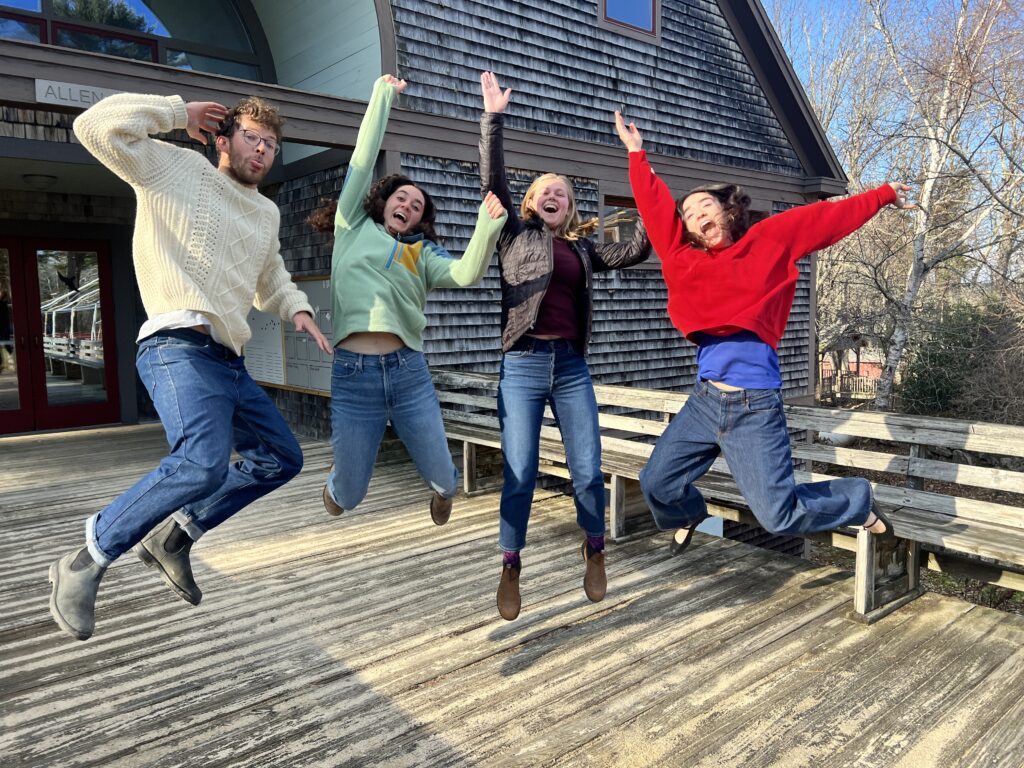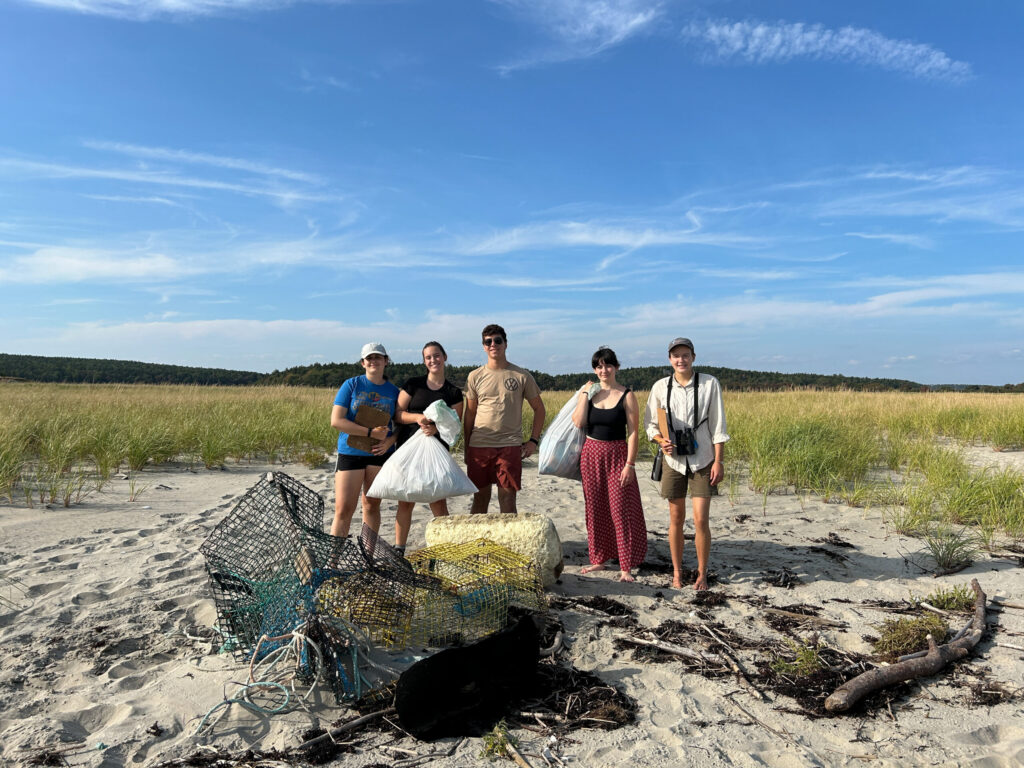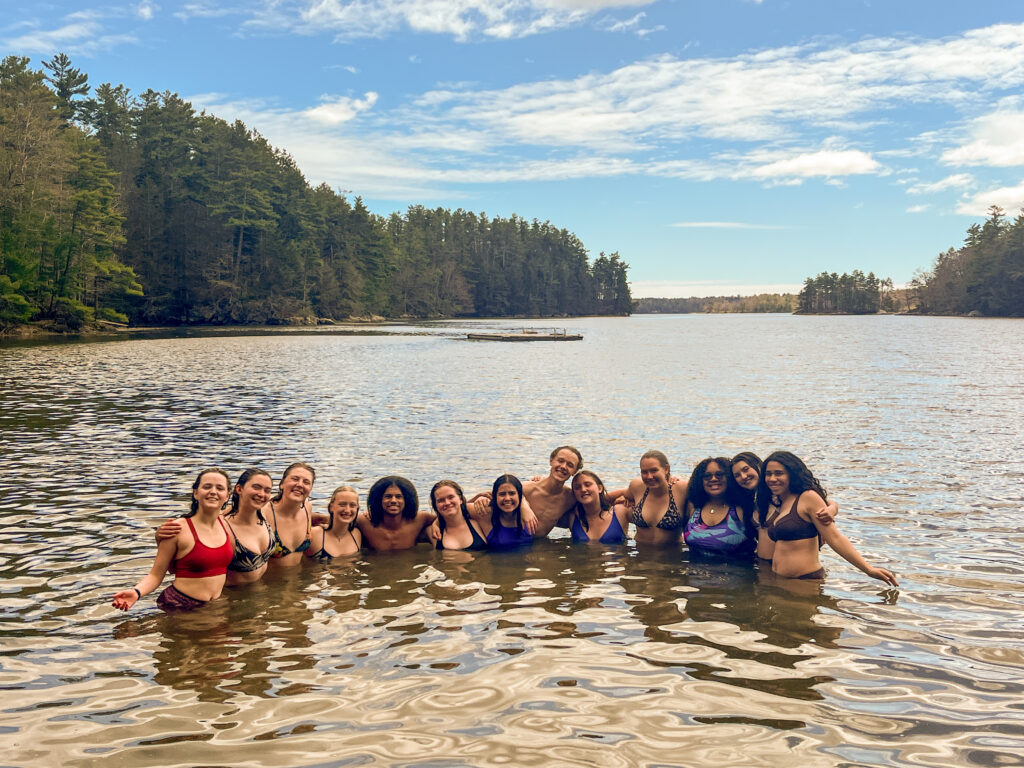It’s been a month here at the Wonk, which means many things but mainly a month of cabin living! To mark this milestone, I want to do a quick overview of these last four weeks with South Hall cabin. It’s been quite the journey, getting to know and be comfortable with these people I live with now, and in my opinion it was a really interesting process. Part of what Chewonki staff does is help facilitate a very tight-knit cabin community separately from the whole semester community–those people are the Cabin Parents, faculty who act as the “parents” or facilitators of cabin meetings. They help us form those bonds, work through conflict, and overall figure out how to live with a group for four months.
I found the first week to be fairly standard in terms of learning how to live with people–if you’ve been to summer camp, the first week is much like the first few days of a two-week session. Everyone is very polite, albeit nervous, about whether or not they should turn out their lights, or stop talking, or when to set their alarms for the morning. Nights are quiet–in South Hall, we used conversation cards and did nightly circles along with our cabin meetings to try and connect to each other, but it often meant that we were in bed just a half hour or so after cabin check-in. The first week is also, simply put, stressful. Everyone’s tired. By the time you get into the cabin, all you really want is to wind down for a few minutes, have a quick debrief about the day, and go to bed.
The second week is when I started to see some of the changes we’d been working towards in week one. We had a lot of really frank discussions about what had worked and not worked about week one, and how we could improve those things, and everyone made conscious efforts to make those changes happen. That also meant that we could be a little freer with things like lights, alarms, and gossip sessions. I started reading aloud after check-in, and we all felt comfortable enough to ask for what we needed (i.e., telling our late night talker that she needed to start whispering or go to bed!). As we became more comfortable with each other, we also started to talk more as an entire cabin and in pairs or trios, depending on who was working or sleeping. South Hall is mostly made up of early sleepers, but in week two those nights started getting later.
Week three was a lot like week two, although less of those conversations about what needed to change were facilitated by our cabin parents. We started initiating and leading those conversations on our own, and making those changes happen without faculty assistance. Week three also became the week of cabin support–there were a lot of very late night talks about all of our various worries or problems, often started because we started noticing behavioral patterns and seeing when our cabin-mates were upset. We all were willing to stay up later than usual to talk through something, and our comfort levels with each other got to the point of being able to share those things.
– Carter Morfit-Tighe is attending from Collingswood High School in Collingswood, New Jersey













